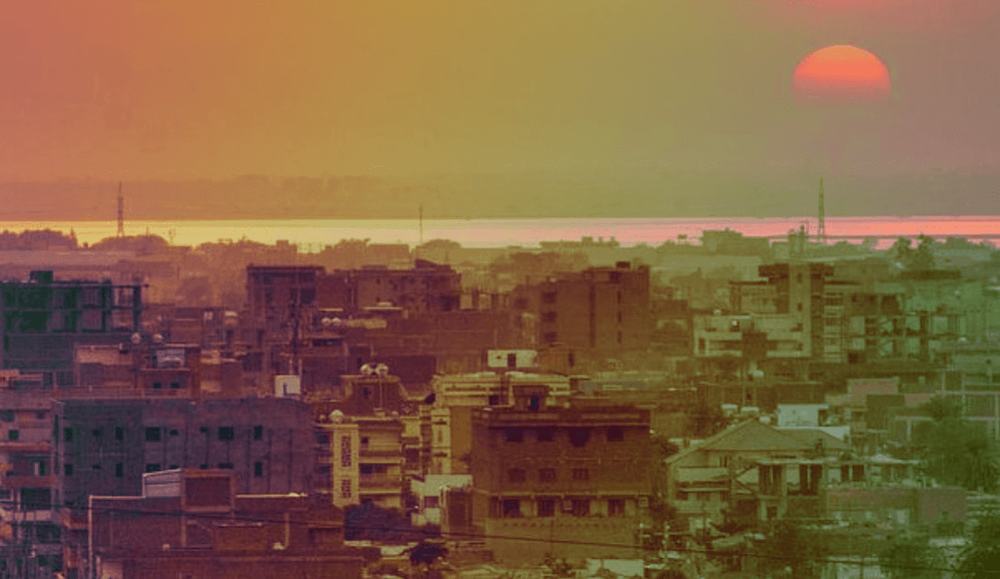Sudan internet shutting down as fighting causes power cuts
Sudan is experiencing severe internet outages amid a power struggle that has pitted the army against a powerful paramilitary force in the streets of the capital Khartoum and around the country.
Alp Toker, director of internet outage monitor NetBlocks, told Recorded Future News that multiple internet providers have started to experience outages across Sudan after nearly a week of fighting. State regulators initially ordered providers to shut down the internet on Sunday as fighting began to intensify but service was quickly restored, according to Reuters.
But now, NetBlocks believes the root causes of the current outages range from power shortages to difficulties around supplying backup generators with gasoline “amid heavy weapons strikes on population centers.”
Canar Telecom, one of the biggest internet providers in the country, began registering partial outages on Wednesday, the fifth day of fighting.
On Friday, connectivity on the company’s services collapsed entirely as a ceasefire in honor of the Muslim holiday Eid al-Fitr was ignored by both sides.
⚠️ Confirmed: An internet outage has been registered on #Sudan internet provider Canar Telecom amid ongoing clashes between military and paramilitary forces; power outages and disruptions have continued since the outbreak of the conflict this week pic.twitter.com/QaxJjdE1zs
— NetBlocks (@netblocks) April 19, 2023
According to Toker, Canar Telecom is the main fixed-line service provider in the country, although other providers have more cell users.
Other companies are now experiencing limited service or outright outages, NetBlocks observed.
“There are similar outages on the cell networks becoming evident now. The internet in Sudan seems to be shutting down,” Toker said.
More than 400 people have been killed since the fighting began over the weekend. The conflict is centered around the country’s president and vice president — both of whom came to power after former dictator Omar al-Bashir was removed from power following historic civilian protests in 2019.
General Abdel Fattah al-Burhan, the country’s president, leads the military while his vice president, General Mohamed Hamdan Dagalo, leads a powerful paramilitary group named Rapid Support Forces (RSF).
The RSF evolved out of the forces accused of human rights violations in Darfur, and Dagalo became one of the richest men in the country through his control of mining and oil operations in South Sudan.
The two forces were slated to merge as part of a tenuous transition to a civilian government but both sides have balked at concessions either would need to make to facilitate the changes.
Since the fighting began, more than 3,500 people have been injured and the Washington Post reported widespread cuts to water and electricity services. Several major hospitals have also been forced to close due to the reductions in power and supplies.
Residents of Khartoum have reported nonstop gunfire and bombing since Saturday as thousands of people flee.
"My biggest fear is that the healthcare system collapses, and the consequences will be catastrophic,” Osama Abubakr Osman, spokesperson for the Sudanese Red Crescent Society, said in a statement.
“Healthcare workers cannot reach hospitals, and hospitals are trying to attend to their patients without electricity, water, running critically short on the essential supplies. Our volunteers are supporting medical workers but the working conditions are extremely difficult.”
Patrick Youssef, a regional director for the International Committee of the Red Cross, said there are already reports of widespread civilian casualties and bodies left lying in the streets of Khartoum.
They are unable to deliver aid because they have not received any security guarantees from either side.
"The last few days have been terrifying for civilians caught in the crossfire. Civilians and civilian infrastructure must be protected at all costs,” Youssef said.
"We have to remember that this latest spike in violence comes on top of years of fighting, instability and economic turmoil that has left millions of Sudanese unable to meet their basic needs. This week's violence will undoubtedly make what was already a complex humanitarian emergency much worse."
Internet shutdowns have become a common occurrence in Sudan as authorities have sought to tamp down civilian protests against military rule.
In 2021, Access Now found that Sudan shut down the internet at least five times. Last year, the military shut down the internet again after outrage grew over the decision by both al-Burhan and Dagalo to stage a coup against the burgeoning civilian government.
Jonathan Greig
is a Breaking News Reporter at Recorded Future News. Jonathan has worked across the globe as a journalist since 2014. Before moving back to New York City, he worked for news outlets in South Africa, Jordan and Cambodia. He previously covered cybersecurity at ZDNet and TechRepublic.



